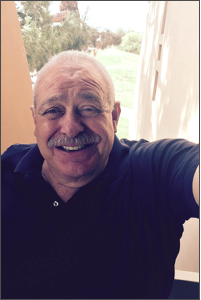What does it take to be a consistent, high-performing REALTOR® in todays market? Several CRSs share their secrets for achieving super success.
By Regina Ludes
Claire Bisignano Chesnoff, CRS, was working as a substitute teacher in 1997 when a family friend who was selling her parents home suggested she work in real estate. I had earned my license in 1995 but hadnt done anything with it, says Chesnoff, a broker/owner with Claire Properties in Staten Island, New York. It took her three months to compile her book of business and six months to complete her GRI. After earning $27,000 in 1998, her first full year in real estate, Chesnoff earned six figures her second year, earned her CRS in 2000 and has never looked back.
While some agents like Chesnoff have realized their goals early in their careers, many others struggle for years before reaching even the most modest levels of success. But top producers say what sets them apart from subpar performers is a proper mindset, a clear vision of their goals and the expectation and confidence to reach them. The Residential Specialist talked with several CRSs to find out how they became top producers in their local market and what average performers can do to reach the highest levels of success.

Claire Bisignano Chesnoff, CRS
Claire Properties, Staten Island, New York
- Continue your education and learn everything you can to excel in your market.
- Review your business plan often and make adjustments that will help you achieve your goals.
- Work with more experienced agents to learn what works for them.
- Dont be afraid to work longer hours and hustle for business.
A LADDER TO SUCCESS
Chesnoff attributes her success to education. Working as a substitute teacher, I understood how important education would be. I was constantly attending classes and earning designations because I wanted to make sure that I had the knowledge to provide top-notch service to clients, says Chesnoff, who lists nine different designations after her name.
Agents should be prepared to work hard and respond quickly to opportunities, adds Chesnoff. If your phone rings, answer it. If you get a text message, respond to it. You need to be in the thick of things at all times, she says. That may mean starting your day one hour earlier than other agents in your office or making your to-do list the night before. It can also mean working 12-hour days for 23 consecutive days to keep the business moving forward, like Chesnoff did in 2007 during the housing market crisis. That kind of dedication paid off later when the local market improved and clients called her when they were ready to buy or sell their home.
FOCUS ON CLIENT SERVICE
After becoming a REALTOR® in 2001, it took only two years for Jean Groesbeck, CRS, with Coldwell Banker Bain in Anacortes, Washington, to see her efforts pay off. Groesbeck works with second-home and luxury buyers who expect top-notch service from agents, so she makes sure to provide faster responses to their inquiries, more detailed reports and presentations with high-quality photos. While other agents in her market tend to preview listings online before showing them to buyers, Groesbeck visits the property herself so she can give clients firsthand observations, and she puts together information packets that they can review later.

Russell Shaw, CRS
Realty One Group, Phoenix, Arizona
- Farm out administrative tasks or hire an assistant to free up your time to concentrate on winning more business.
- Become an expert on listing presentations, and learn to generate your own sales leads.
- Surround yourself with other top producers who are supportive of your goals.
- To overcome plateaus, think big and visualize larger numbers of deals.
- Think positively. If you expect to be successful, you will be successful.
Since my clients are comparing our community with others nearby, I need to give them as much detailed information as possible to help them make their decision, Groesbeck explains. There is so much information out there, but much of it is either lengthy, based on opinion or simply not accurate. I help them sort all that out.
Part of any good customer service focus includes working with clients to find the right housing solution which in some cases means delaying a purchase or sale of a property. For example, when a client wanted to list his home shortly after his wife died, Groesbeck realized the man was not ready emotionally to deal with the stress of selling his home and she advised him to delay his decision.
The days that I dont sell a home or get a listing are sometimes the most rewarding because I know I did the right thing and found the right solution for the client. Its about customer service, and thats what gets people to refer clients to you, Groesbeck says.
FOCUS ON LISTINGS
During his first 12 years in the real estate business, Russell Shaw, CRS, with Realty One Group in Phoenix averaged between 17 and 23 deals per year. After shifting his focus in 1988 to work exclusively with listings, Shaw saw his production steadily increase from 60 deals in 1991 to 406 in 2006. He now works with a team who helped him close 345 transactions in 2014.
At first, I took any listing I could find, but that was not very productive. Its more important to get a saleable listing. Sometimes you have to rule out certain people as clients or walk away from some listings that may be more trouble than theyre worth, Shaw says.
In addition to mastering lead generation techniques, Shaw hired an assistant to handle the administrative tasks that were weighing him down. The agent who can generate leads is worth $200 an hour, he says. The cost of hiring an assistant is small, but it opens up an agents schedule to work on sales activities that are more important.
Successful agents must become experts at crafting and delivering impressive listing presentations, Shaw adds. The biggest barrier to success is thinking they already know how to list, which cuts them off from learning new strategies, he says. The more listing presentations they do, the more proficient they will become.
To move past production plateaus, Shaw says agents need to think bigger and visualize a larger number of deals. For example, if REALTORS® find themselves stuck at 20 deals per year and want to achieve 50, they need to visualize that larger number until they get comfortable with it. If 50 seems too high, it will prevent them from reaching that goal. But if they begin to visualize 100 deals per year, 50 will eventually seem more reachable, Shaw says.
LOOK FOR MENTORS
REALTORS® who work with influential mentors gain a big advantage. After working as a police officer in Memphis, Rita Driver, CRS, became a REALTOR® on a dare. When she started out in the business, I immediately sought out different mentors, including agents, lenders, attorneys and home inspectors, because I wanted to learn as much as I could, says Driver, broker/owner with All Stars Realty in Memphis. Her production soared in 2001, and in one month alone she closed 17 deals. She completed 356 deals in 2011 with a support staff of three, while the buyer agents on her team contributed an additional 150 deals.
Driver says her knowledge of the mortgage market gives her an edge over other agents in her area. She completed training in lending and worked for eight months as a loan originator in the mid-1990s after becoming frustrated with local lenders who were reluctant to work with anyone who had a challenging financial situation.
Second HelpingsAmong all homebuyers in 2014, the number of buyers purchasing a primary residence declined, but the market share of buyers of vacation homes continued to rise. |
||
|---|---|---|
| 2014 | 2013 | |
| Number of sales | 1.13 million | 717,000 |
| Share of all transactions | 21% | 13% |
| Median price | $150,000 | $168,700 |
| Cash sales | 30% | 38% |
| Distressed property sales | 45% | 42% |
| Median buyer income | $94,380 | $85,600 |
| Median distance from primary residence | 200 miles | 180 miles |
Theyre still potential buyers in my mind, so I became a financial advisor to my clients. I can tell them what types of loans are available and what they qualify for. Many of my past clients still call me with questions about refinancing, Driver says. She also owns her own moving truck that clients can use for free and provides notary services.
Driver advises agents to shift their business focus as the housing market changes. When the new-home market boomed in the Memphis area in the early 2000s, Driver worked more with builders and new-home sales, and then when the housing bubble burst a couple of years later, she learned to work short sales to serve the growing short-sale market. Almost all the agents in my market shied away from doing short sales, so those agents sent their clients to me, Driver recalls.
A DIFFERENT MINDSET
Top agents tend to be bigger risk-takers than average agents, Driver says. They run their business like an actual business. Because theyre the decision-makers, they control the money and the work. And they know how to manage risk versus reward in their business practices.
Shaw adds that the best agents have unfailing confidence in their abilities and expect to be successful. He encourages newer agents to connect with top performers in the industry and learn from them. A top producer will be supportive of your goals and wont doubt your ability to achieve them, Shaw says. If you surround yourself with other top agents, you will begin to think and perform like a top producer, too.
The CRS Legends Video bundle is available at crs.com/education.








